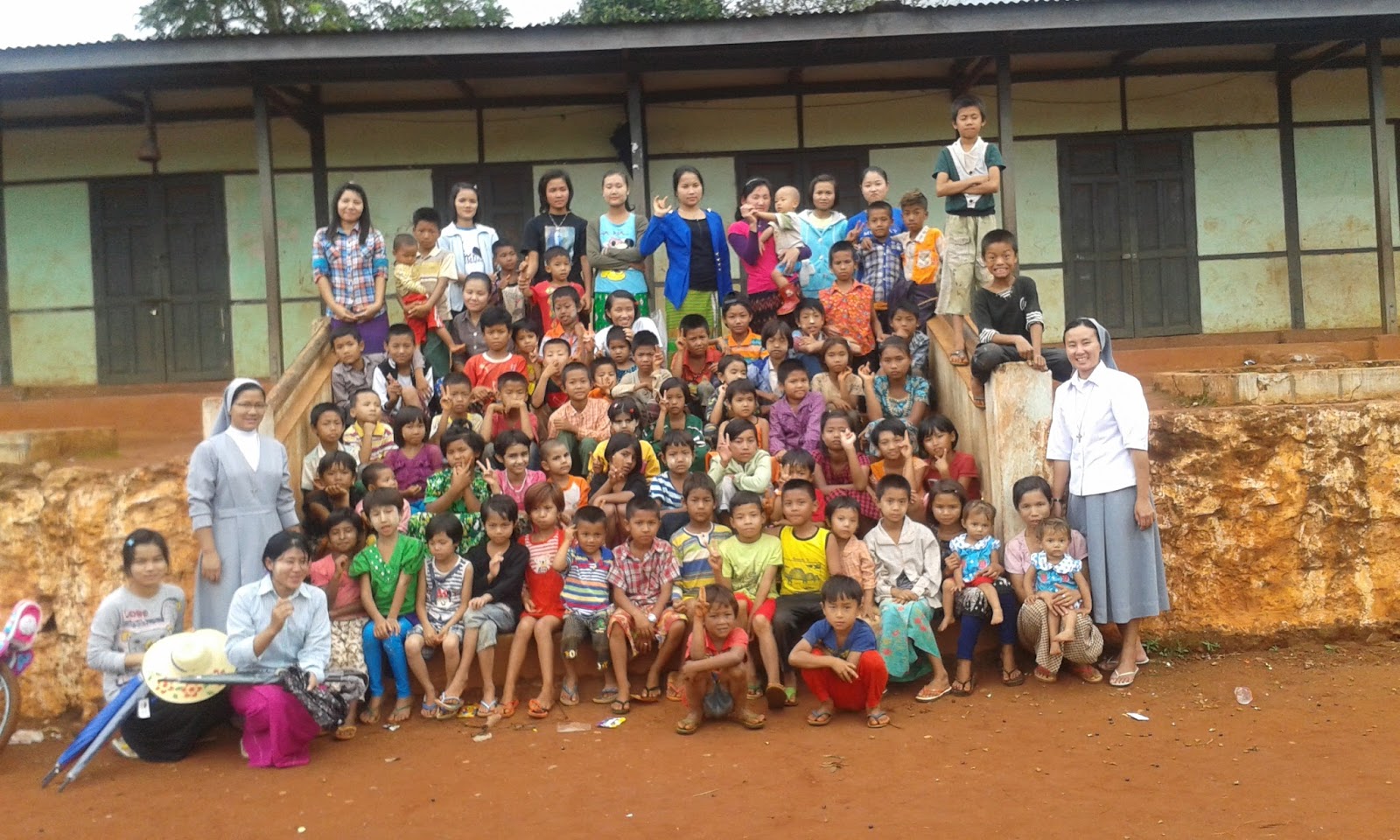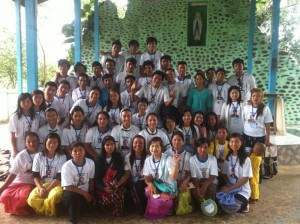MYANMAR: Salesian missionaries provide life-changing education and social programs

(MissionNewswire) While Myanmar as a whole is enjoying some overall economic growth, not all people in the country are enjoying the benefits of this expansion. Many are still living in poverty. Salesian missionaries operate 10 centers throughout Myanmar to help those who are poor, in need of education and are marginalized.
In Anisakan and May Myo, approximately 100 widows receive weekly food supplies and educational support for their children. At the Vocational Training Center in Myitkyina, missionaries hold summer camps each year that help support more than 1,200 children. Courses are provided on social values, child protection, drug awareness and leadership. In addition, Salesian missionaries provide education and healthcare support for youth from more than 400 tribes in the Wa state region of the country.
“The work of Salesian missionaries in Myanmar and in programs around the globe goes beyond education,” says Father Mark Hyde, executive director of Salesian Missions, the U.S. development arm of the Salesians of Don Bosco. “We aim to serve the whole person by making sure that basic needs like health and nutrition are met in addition to other social service needs.”
 The city of Mandalay has a number of street children who live on the margins of society under inhumane conditions. These youth have no access to education, use drugs, feed on scraps of food and only rarely do they find small jobs. Stealing is commonplace. The juvenile prison is in a pitiful condition with a scarcity of food and no medical care. The only educational services offered in the penitentiary are carried out by Salesian missionaries.
The city of Mandalay has a number of street children who live on the margins of society under inhumane conditions. These youth have no access to education, use drugs, feed on scraps of food and only rarely do they find small jobs. Stealing is commonplace. The juvenile prison is in a pitiful condition with a scarcity of food and no medical care. The only educational services offered in the penitentiary are carried out by Salesian missionaries.
Don Bosco Friend Youth Center was created as a safe haven for street youth to avoid the juvenile prison by accessing shelter, proper nutrition and education. The facility, which operates 24 hours a day, is directed by Father Peter Myo Khin along with six paid staff and provides temporary shelter, food, health care and formal and non-formal education.
Close to 30 boys, aged 4 to 18, live at the center permanently while dozens more access services on a drop-in basis. If the boys in the center do not want to attend school, they can pursue a non-formal education at the center. Of the 30 boys currently attending the program, 22 are in formal education while eight have chosen a non-formal education path.
“This is a life-changing program for youth living on the streets in Mandalay,” says Fr. Hyde. “There is an outreach program, which is the first step in helping youth and giving them a better life beyond the streets. Once in the program, the youth center is safe place for the boys where they can access the services and support they need and ensure they gain an education.”
While Myanmar is the second largest country in Southeast Asia and rich in natural resources, it is one of the least developed countries in the world, ranking 148 out of 188 countries according to the 2015 Human Development Report. More than a quarter of Myanmar’s population still lives in poverty with the poverty rate rising sharply to 70 percent for those living in rural areas. Myanmar also has the lowest life expectancy and the second highest rate of infant and child mortality in the region. Just one-third of the population has access to the electricity grid, and only about half of school age children complete their primary education.
###
Sources:
Photo courtesy of Salesian Sisters in Cambodia and Myanmar
The Australian Salesian Mission Overseas Aid Fund Newsletter/ Annual Report 2017
Salesians of Don Bosco – Myanmar
World Bank – Myanmar




